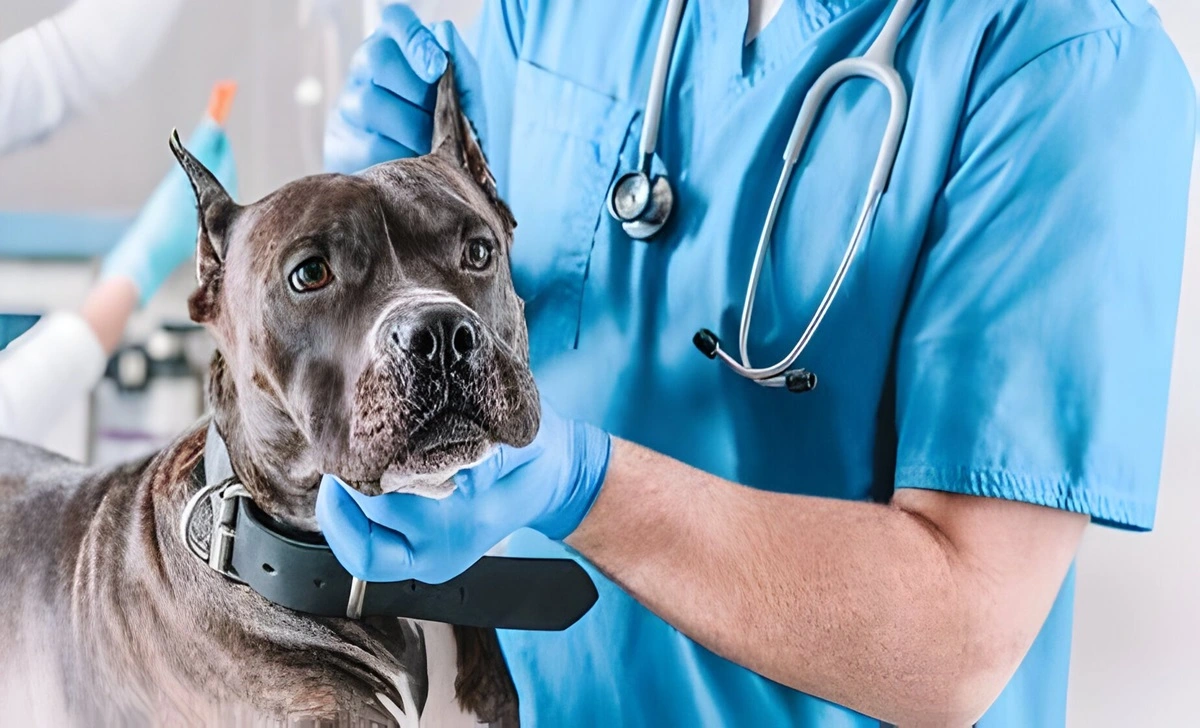As devoted pet parents, we understand that ensuring our pets’ health and happiness is a shared responsibility when addressing common health issues in pets. In this comprehensive guide, we’ll delve deep into common health issues in pets that affect our beloved pets, provide practical prevention tips, and offer expert advice for optimal care. So, grab a comfy spot with your furry friend, and let’s embark on this journey together, knowing that you have the power to make a difference in your pet’s health!
Table of Contents
ToggleUnderstanding Common Health Issues in Pets
Obesity: The Weighty Issue
Let’s kick things off by tackling a prevalent pet concern: obesity. Did you know that more than half of all dogs and cats in the United States are overweight or obese?
Common Health Issues in Pets: Many pets face various challenges. It’s not just a cosmetic issue – carrying excess weight can lead to serious health issues, such as diabetes, joint pain, and heart disease. Addressing these concerns is crucial for your pet’s well-being. Watch for signs of obesity in your pet, such as difficulty breathing, reluctance to exercise, and visible fat deposits. To address this issue, focus on a balanced diet tailored to your pet’s needs, incorporate regular exercise into their routine, and consult your veterinarian for personalized guidance.
Dental Issues: Smile Bright, Chew Right
Skin Allergies: The Itch That Needs a Scratch
Skin allergies are a common affliction among pets and can cause significant discomfort and irritation. Common allergens include pollen, dust mites, certain foods, and flea saliva. Symptoms may include itching, redness, and skin inflammation. Identify and minimize exposure to potential environmental allergens to alleviate your pet’s discomfort. Regular bathing with a hypoallergenic shampoo can also help soothe irritated skin. If allergies persist, consult your veterinarian for proper diagnosis and treatment options related to common health issues in pets.
Arthritis: Aches and Pains in Aging Pets
Arthritis, a degenerative joint disease, is a common ailment among ageing pets, although it can affect animals of all ages. Symptoms may include stiffness, limping, and reluctance to engage in physical activity. While arthritis cannot be cured, there are several ways to manage your pet’s symptoms and improve their quality of life. Provide your pet with a soft, supportive bed to alleviate joint pressure, and consider incorporating joint supplements into their diet. Low-impact exercises like swimming or gentle walks can also help improve mobility and reduce pain, which is important when addressing common health issues in pets.
Digestive Issues: From Tummy Troubles to Digestive Delights
Digestive problems, such as vomiting, diarrhea, and constipation, can be distressing for both pets and their owners. These issues can arise due to dietary indiscretions, food intolerances, or underlying health conditions. To promote optimal digestive health:
- Feed your pet a balanced diet consisting of high-quality ingredients.
- Introduce new foods gradually to minimize the risk of digestive upset, and consider adding probiotics or digestive enzymes to support gut health.
- If digestive issues persist, consult your veterinarian for a proper evaluation and treatment plan.
Prevention Strategies for Pet Health
Diet and Nutrition: Fueling Your Furry Friend
A nutritious diet is the foundation of good health for your pet. Choose a high-quality pet food appropriate for your pet’s age, size, and breed. Look for products that list real meat as the primary ingredient and avoid fillers and artificial additives. Additionally, monitor your pet’s portion sizes to prevent overfeeding and obesity. If you have concerns about your pet’s nutritional needs, consult your veterinarian for personalized recommendations.
Exercise and Activity: Keeping Your Pet Moving
Regular exercise is essential for maintaining your pet’s physical and mental well-being. Engage in daily activities that stimulate both their body and mind. Take your dog for brisk walks, play fetch in the backyard, or engage your cat in interactive play sessions with toys and laser pointers. Not only does exercise help keep your pet in shape, but it also strengthens your bond and provides enrichment and mental stimulation.
Dental Care: Say Cheese!
Pay attention to the importance of dental care in your pet’s overall health regimen. Brush your pet’s teeth regularly using a pet-specific toothbrush and toothpaste to prevent plaque buildup and tartar formation. Offer dental treats and toys designed to promote chewing and reduce plaque accumulation. Schedule routine dental check-ups with your veterinarian to assess your pet’s oral health and address any issues promptly.
Grooming Practices: Keeping Your Pet Looking and Feeling Their Best
Common Health Issues in Pets, Regular grooming sessions are an opportunity to keep your pet looking adorable and essential for maintaining their skin and coat health. Brush your pet’s coat regularly to remove loose fur and prevent matting. Bathe them as needed using a gentle, pet-friendly shampoo, and trim their nails regularly to avoid overgrowth and discomfort. During grooming sessions, check for Common Health Issues in Pets by looking for any signs of irritation, lumps, or parasites on your pet’s skin.
Environmental Considerations: Creating a Safe Haven for Your Pet
Creating a safe and comfortable environment for your pet is a top priority to prevent Common Health Issues in Pets. Eliminating potential hazards and toxins can make your home a secure haven for your pet. Keep household chemicals, medications, and small objects out of reach. Ensure your yard is securely fenced to prevent escapes and supervise your pet when it’s outside. Provide plenty of shade and fresh water, especially during hot weather, and create a designated area for your pet to rest and relax indoors, knowing that they are safe and secure.
When to Seek Veterinary Care
Knowing when to seek veterinary care for your pet ensures their health and well-being. Don’t hesitate to contact your veterinarian if you notice any concerning symptoms or behaviors. Some signs that may indicate a need for medical attention include:
– Difficulty breathing or persistent coughing
– Lethargy or weakness
– Loss of appetite or refusal to eat
– Vomiting or diarrhea lasting more than 24 hours
– Injuries, wounds, or bleeding
– Seizures or collapse
– Sudden changes in behavior or mobility
Your veterinarian is your pet’s best ally in maintaining their health, so don’t hesitate to reach out if you have any concerns.
Recommendation of Pet Health Products
Explore various pet health products designed to support your pet’s well-being and enhance their quality of life. From supplements to insurance plans, these products offer additional support and peace of mind for pet parents:
Supplements:
Consider incorporating supplements into your pet’s daily routine to address specific health concerns, such as joint support, skin and coat health, and digestive aid. These supplements often contain natural ingredients like glucosamine, omega-3 fatty acids, and probiotics to help address common health issues in pets and promote optimal health and vitality.
Insurance Plans:
Invest in pet insurance to provide financial protection in the event of unexpected medical expenses. Pet insurance plans typically cover accidents, illnesses, and routine care, allowing you to focus on your pet’s health without worrying about the cost of treatment. With various coverage options and providers, you can find a plan that fits your budget and your pet’s needs.
Conclusion
As pet parents, it’s our responsibility to prioritize the health and well-being of our furry companions. By understanding common health issues in pets, we can better care for them. implementing preventive measures, and seeking expert care when needed, we can ensure our pets live long, happy, and healthy lives. Remember to stay proactive about your pet’s health, schedule regular check-ups with your veterinarian, and provide them the love and care they deserve. Together, we can keep our furry friends thriving for years to come!
FAQs:
1. What are the signs of a healthy pet?
Answer: A happy and healthy pet typically shows signs like a shiny coat that’s smooth to the touch, bright and clear eyes, playful behavior, and a good appetite. You’ll notice they have regular bathroom habits and are generally energetic. And, of course, regular check-ups with your vet help ensure they’re in tip-top shape!
2. How often should I take my pet to the vet for a check-up?
Answer: Most vets recommend a yearly check-up for your furry friend. However, just like us, some pets may need more frequent visits depending on their age, breed, and any existing health conditions. It is a regular wellness routine to keep them feeling their best!
3. What should I feed my pet for optimal nutrition?
Answer: Think of your pet’s meals like a balanced plate for yourself! Look for high-quality pet food with real meat as the star ingredient, and avoid fillers and artificial additives. Your vet can give personalized advice based on your pet’s age, size, and health concerns.
4. How to Prevent Common Health Issues in Pets, Avoiding Overweight?
Answer: Keeping your pet at a healthy weight is essential for their overall well-being. It’s all about balance! Please ensure they get plenty of exercise and playtime, and watch their portion sizes. Treats are okay in moderation but stick to healthy options. And if you’re ever unsure, your vet can help create a weight management plan tailored to your pet’s needs!
5. What are some common signs of dental problems in pets?
Answer: Just like us, pets can have dental issues, too! Look for bad breath, red or swollen gums, and trouble chewing. If you notice any of these signs, it might be time for a dental check-up with your vet. Regular teeth brushing and dental treats can also help keep their pearly whites sparkling!
6. Are there natural remedies for common pet ailments?
Answer: Absolutely! Some pet owners swear by natural remedies like herbal supplements or essential oils for skin allergies or upset tummies. Just be sure to chat with your vet first to ensure it’s safe and suitable for your furry friend.
7. How can I keep my pet’s skin and coat healthy?
Answer: A healthy coat starts from the inside out! Ensure your pet eats a balanced diet with all the essential nutrients. Regular grooming sessions keep their fur looking fabulous and help distribute natural oils and remove pesky tangles. And don’t forget to protect them from fleas and ticks with preventative treatments!
8. Is pet insurance worth it?
Answer: Pet insurance can be a lifesaver in the case of unexpected vet bills. It’s like having a safety net for your furry friend! Whether it’s worth it depends on your pet’s needs and budget. Please take into account things like their age, breed, and any pre-existing conditions. Your vet can help you understand and address common health issues in pets, ensuring the best care for your pet’s health and peace of mind!





